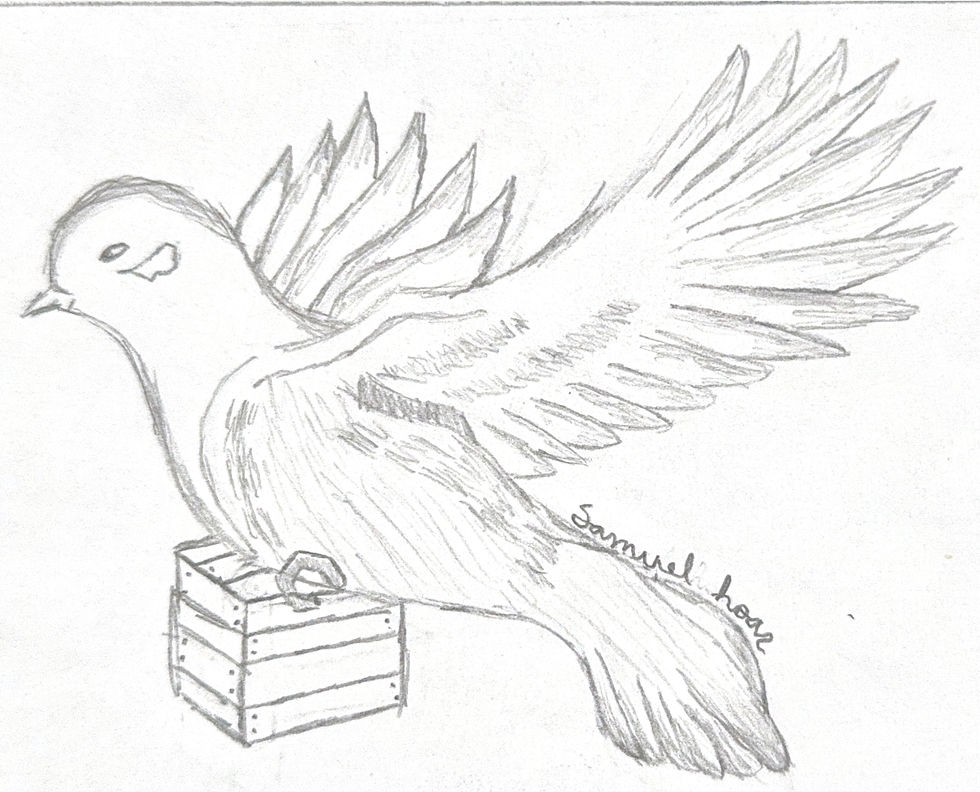Whitman’s poetry outlines power of carrying points
- Samuel Hoar

- Nov 17, 2025
- 2 min read

Everyone knows someone who is carrying a burden. Chances are if you aren’t, you have a friend or relative who is. Struggles are all too common in this broken world. Their prevalence necessitates a question: what does it look like to carry other’s burdens? Walt Whitman approaches this question in his poem “Out of the Cradle Endlessly Rocking.”
The poem focuses on two central characters: a boy who explores the seashore and a male bird. The boy, in his expeditions to the coast, finds a nest and a pair of eggs, and he silently watches a pair of birds happily protect and raise the eggs. A few stanzas in, the songstress dies, leaving the songster all alone. The rest of the poem is filled with the boy observing the bird’s grief.
The songster cries out again and again, calling for his mate. His sorrow affects the boy greatly, changing him forever. The boy, once innocent, learns about love and loss. He experiences the bird’s grief, and he loses his boyhood, replacing it with the voice of a poet.
Whitman’s most powerful point is how life-altering another person’s trials can be. Experiencing hardships in your own life changes you, but witnessing those trials in another person’s life is just as powerful.
In the poem, the boy does nothing because he can’t do anything. All he does is observe the grief of the bird, powerless. But as humans, we are called to a higher standard. We are able to help those struggling around us, and our comfort could greatly reduce the weight of a burden.
God places trials in our life to challenge and grow us, and that applies to challenges that you personally may not be facing. Learning how to cope with, comfort and carry other people’s challenges is a vital life skill. They are opportunities to grow our faith and draw nearer to the ones around us.
The question is not whether or not to help those in need. 1 John 3:16-17 clearly lays that out: “By this we know love, that he laid down his life for us, and we ought to lay down our lives for the brothers. But if anyone has the world’s goods and sees his brother in need, yet closes his heart against him, how does God’s love abide in him?”
The question is how to help those who need it. Comfort and guidance are easy answers, but the truth is that every case is different, and we must seek truth through the Bible, prayer and the wisdom of others to know how to help others. This answer might seem vague and unsatisfying, but it is our only option.
We must be certain not to take on what is too much for us. It’s like physical weight–we can only carry so much of it before we hurt ourselves. Similarly, if we try to carry a burden we aren’t meant to hold, we may hurt ourselves.
“Yes my brother I know, / The rest might now, but I have treasur’d every note…I, with bare feet, a child, the wind wafting my hair, / Listen’d long and long,” Whitman wrote.





Comments